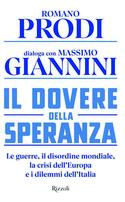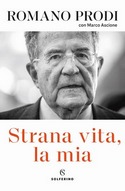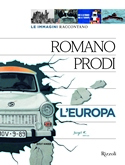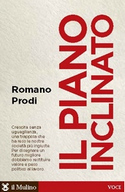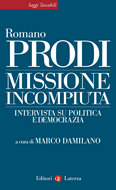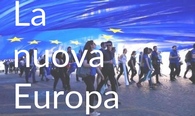L’Europa non è più un sogno: ora diventa una necessità
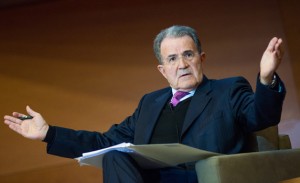 Prodi: The European Project is in Everyone’s Interest
Prodi: The European Project is in Everyone’s Interest
Former EC president calls for greater political union
Summary of the speech held by Romano Prodi at IESE Business School in Barcelona on april 9th 2015
The European Union is declining as an institution. It is dominated by Berlin-mandated policies and it is “not inconceivable that it will lose members.”
This was the warning issued by former president of the European Commission and former prime minister of Italy, Romano Prodi, at IESE’s Barcelona campus last night.
Prodi was the keynote speaker at an event co-hosted by the Italian Chamber of Commerce and attended by key dignitaries, including Barcelona Mayor, Xavier Trias.
It’s bad news for Europe’s influence in the world and its economic performance, says Prodi. The Juncker Plan in itself is not enough to reboot growth. Europe’s economic, business and political health hinge on closer and deeper political ties – ties that only an integrated “European project” can facilitate, he said.
France, Italy and Spain should be working more closely together to preserve their mutual interests – and to create a counterweight to the political and economic influence currently wielded by Germany, he said.
“We’ve Lost Our Way”
Much has changed in Europe since 1978, when Prodi held the post of Italian Minister for Industry.
Since then, the European Union itself has transformed beyond recognition, said Prodi, expanding eastwards, tightening its mutual ties and adopting a common currency, much of which occurred under his presidency of the European Commission.
However, the European project has “lost its way,” he feels, in recent years.
Looking to Berlin, Not Brussels
“China is interested in speaking to European countries – it is not interested in speaking to the European Union,” said Prodi.
Europe’s decline as a cohesive economic and political entity is something he attributes to “shifting tectonic plates of political power within the institution.”
At one time, the EU was what Prodi describes as a “union of minorities,” with a Franco-German power base, but no single dominant country. At this stage, the UK also had a big influence on the organization, operating what he described as a “deft although sometimes opaque diplomacy.”
Taken together, this “balance of forces” helped preserve a degree of plurality within Europe. But times have changed.
“Now, everyone looks to Berlin, not Brussels,” he said, pointing to the “increased weight” given to the pronouncements of the Bundesbank in comparison to decisions made by the European Central Bank.
Meanwhile, the UK government has promised a referendum on leaving Europe if re-elected this year; and the specter of Greece leaving the EU looms large.
The previously “unthinkable” notion of the union breaking up is now “top of mind” – despite it being against everyone’s interests, said Prodi.
Closer Ties Within Europe
Europe’s influence in the world is decreasing. And this in spite of it being the world’s number one industrial producer and exporter, says Prodi.
Examples of the disintegration of European unity can be found, he says, in world reaction to the current crisis in Ukraine, which are “dominated by the U.S. and Germany.” All things being equal, said Prodi, the “dominant response” to Ukraine should have been “European.”
He is in favor of “closer ties within Europe” to support economic growth and business. If the common energy market could be “better harmonized,” he believes that Europe could become a major player in global energy exportation.
A better-coordinated Europe would also be better equipped to deal effectively with financial crises, he said, suggesting that Greece’s financial woes could have resolved faster and for less than €40 billion. Lack of agreement has meant that within three months, this figure has spiraled out of control to €300 billion and counting.
He rejected the notion of a Greek exit from the Union. “It is not in any country’s interest to leave the club as they will stand alone against the threat of competition from emerging countries like China, Russia and Brazil.”
France, Italy and Spain: A Counterweight to Berlin
But Prodi is optimistic. He sees the current decline as part of the ebb and flow of European politics. The “European project is a long-term and inter-generational undertaking,” he said.
He also sees short-term opportunities for economic growth in the Eurozone, thanks to cheap oil, quantitative easing and the current strength of the dollar versus the euro. “We should at least get one or two years’ growth out of this,” he insists.
Longer term, Prodi feels that France, Italy and Spain should develop closer ties and speak with a more united voice in Europe – providing a counterweight to what he sees as Germany’s political and economic dominance.
He also stresses that new generations of Europeans must be won over. European integration, he said, needs to be “relevant” to young people to be sustainable and far-reaching.
“Repairing and re-establishing Europe’s place in the world is essential, I believe. Europe is no longer a ‘dream.’ It is a necessity.“






